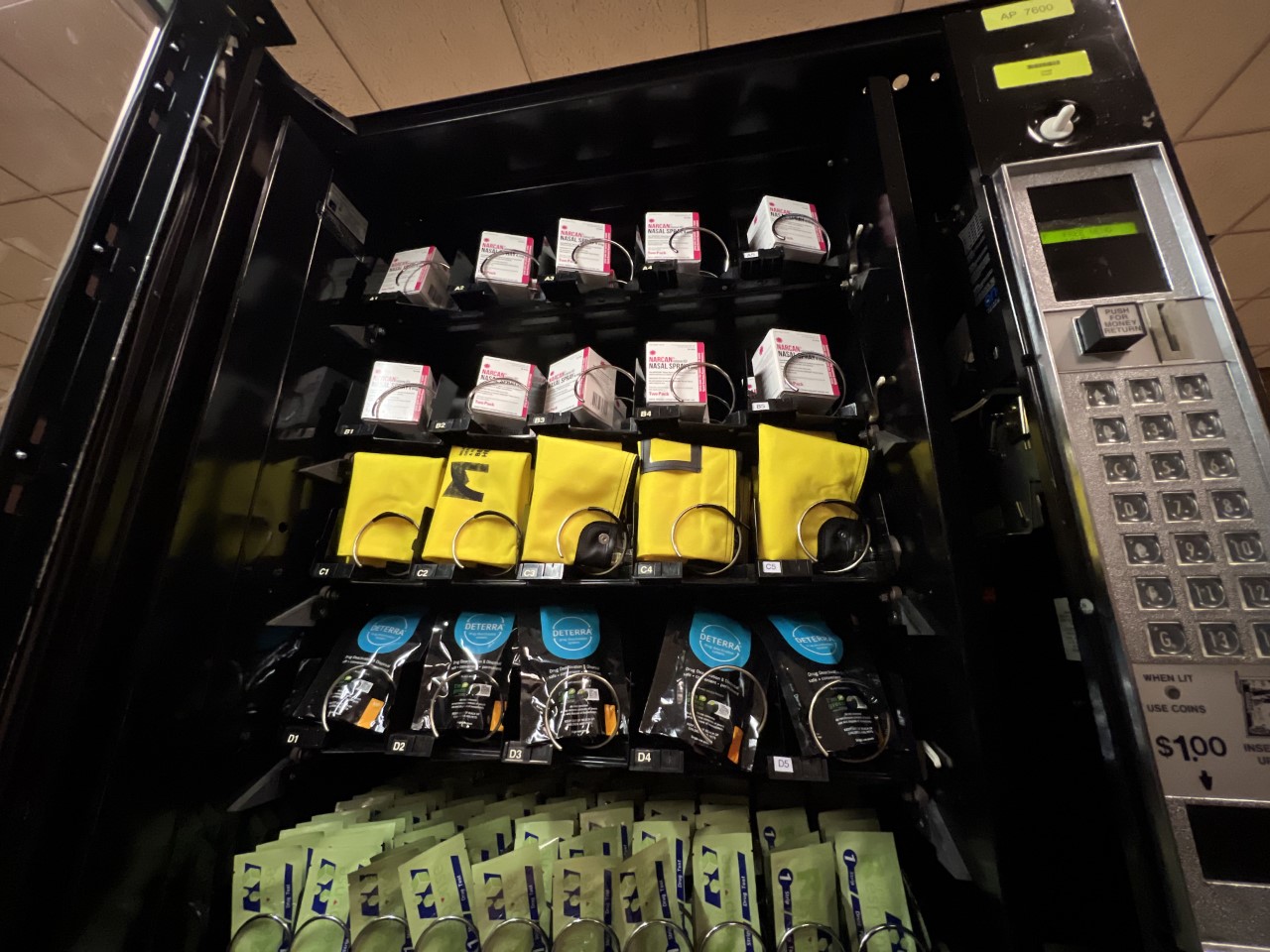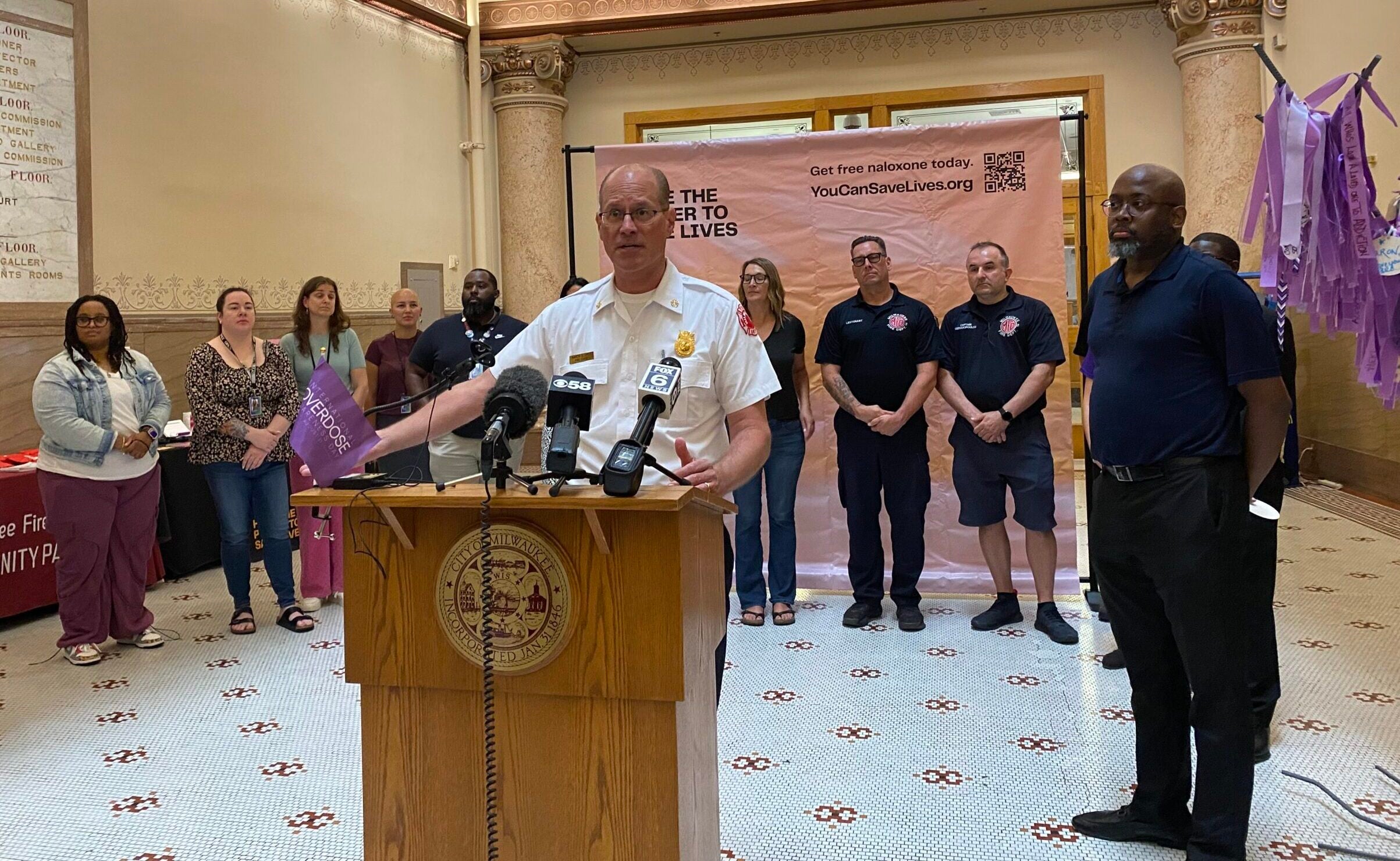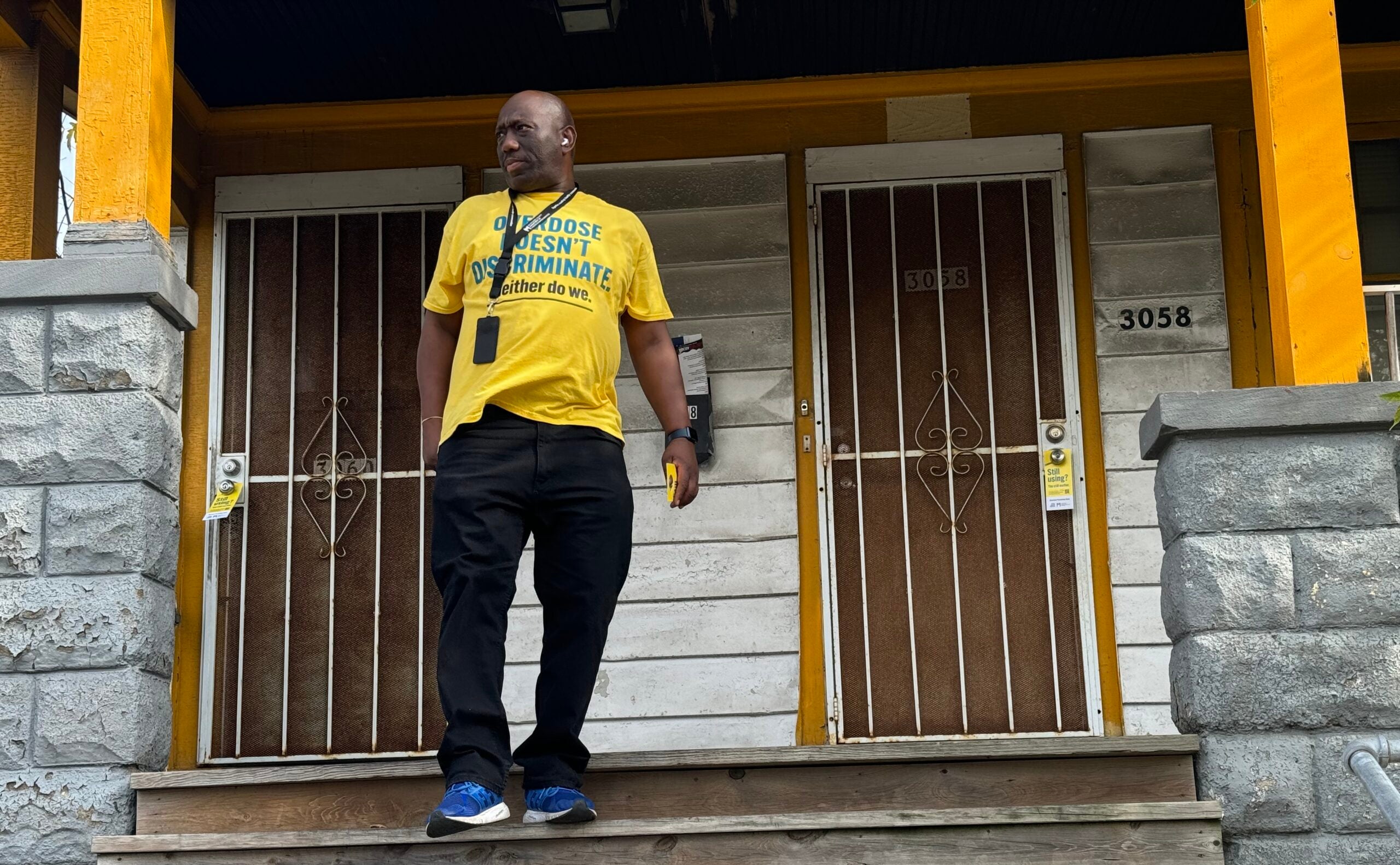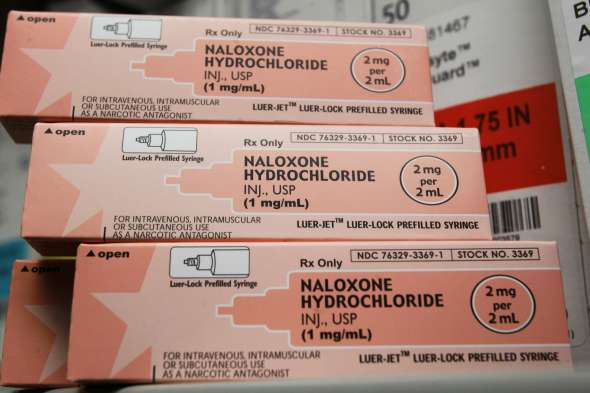In Milwaukee County, someone dies of a drug overdose every 16 hours.
The county has seen record number of overdose fatalities for four years in a row, with advocates saying the problem is hitting all demographic groups across the county.
But officials hope the release of $11 million from lawsuit settlement funds — the money going toward prevention, education and treatment — will help slow down the number of overdoses.
News with a little more humanity
WPR’s “Wisconsin Today” newsletter keeps you connected to the state you love without feeling overwhelmed. No paywall. No agenda. No corporate filter.
Milwaukee County Executive David Crowley signed a bill releasing the funds to 15 different projects Monday, ranging from treatment for county prisoners who are suffering from opioid use disorders to vending machines filled with free Narcan and fentanyl test strips.
“Today we’re taking the next step in unlocking desperately needed funds for Milwaukee County to specifically address the destruction left by the opioid epidemic,” Crowley said during a press conference Monday.
Government officials learned in December 2021 that the state and county would receive funds from the settlement of a large, multistate lawsuit against opioid maker Janssen Pharmaceuticals and three opioid distributors. The Milwaukee County Board of Supervisors passed a resolution allocating the funds in February.
The county will use approximately $400,000 to place several vending machines filled with free harm reduction supplies like the opioid overdose treatment Narcan and fentanyl test strips at different spots throughout the county. The vending machines, which have been used at other cities across the state and nation, will also include medication lock bags, pouches to destroy medication and gun locks.
Jeremy Triblett, a prevention manager with the Milwaukee County Behavioral Health Division, said the main goal is to decrease the number of overdoses, so people can get into treatment.
“That’s critically important — that’s really the seed of this entire project,” Triblett said during the press conference.
The first vending machine will be placed at the Coggs Human Services Center in Milwaukee. All items will be free for the public.
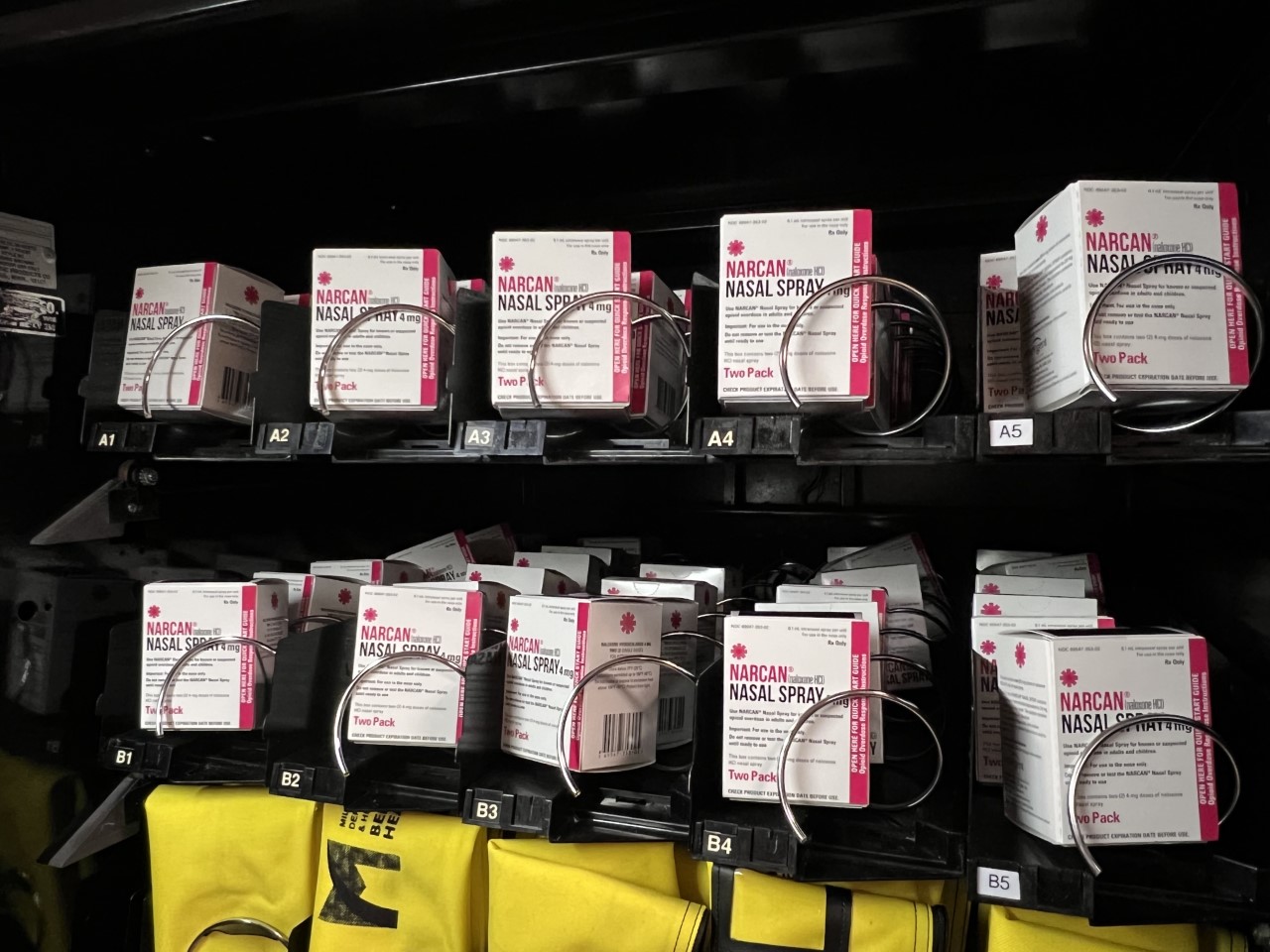
“The truth is these are items we traditionally used to hand out hand-to-hand, person-to-person,” Tribblett said. “Now we found another mechanism using a familiar device — a vending machine — putting it in places that I can’t be, because I can’t be two places at once.”
Triblett said the county has received about 15 applications for the vending machines so far. The hope is to place them at community organizations, churches, libraries and even restaurants. Data from the American Medical Association says nearly 80 percent of opioid overdose deaths happen outside a medical setting.
Amanda Maria Rodriguez, who works with Community Medical Services — a medication-assisted treatment facility with locations in South Milwaukee and West Allis in Milwaukee County — is planning to apply to get a machine at one of their clinics. She believes people will be more open to grabbing items from the vending machine rather than asking for it.
“Now, if they’re in the places where they’re visiting, they have easier access to grab it and go,” Rodriguez said.
County seeing record numbers of overdoses
Ben Weston, the chief health policy adviser in Milwaukee County, said the vending machines are a big step for the county and its residents, which has been hit hard by the opioid epidemic.
Although final numbers are pending toxicology tests, Milwaukee County Medical Examiner’s Office estimates there were 678 drug-overdose deaths in the county in 2022. That’s a 5 percent increase over the previous year. If that estimate stands, it would be the fourth year in a row the county broke that record.
Weston believes the settlement funds — spread across the Medical Examiner’s Office, the Office of Emergency Management, the Milwaukee County Department of Health and Human Services and the Sheriff’s Office — will lead to a decrease in overdose deaths in the near future.
“This infusion of opioid settlement dollars will allow us, under the progressive leadership of County Executive Crowley, to expand existing efforts and add new interventions to prevent the worst outcomes from opioids as we connect folks with resources in our county,” Weston said.
In 2021, 644 people died of a drug overdose in Milwaukee County. Around 80 percent of the drug deaths involved fentanyl, a synthetic opioid that’s 50 to 100 times stronger than morphine.
Data has shown the average age for overdoses deaths in Milwaukee County is 44 years old. The majority of overdoses is being seen in the north and south sides of the city, according to the county overdose dashboard.
There were 1,427 opioid-related deaths statewide in 2021, the highest number on record. That’s a 16 percent increase over 2020 and a 70 percent increase over the number of deaths in 2018.
Twenty-one years ago, that figure was 111.
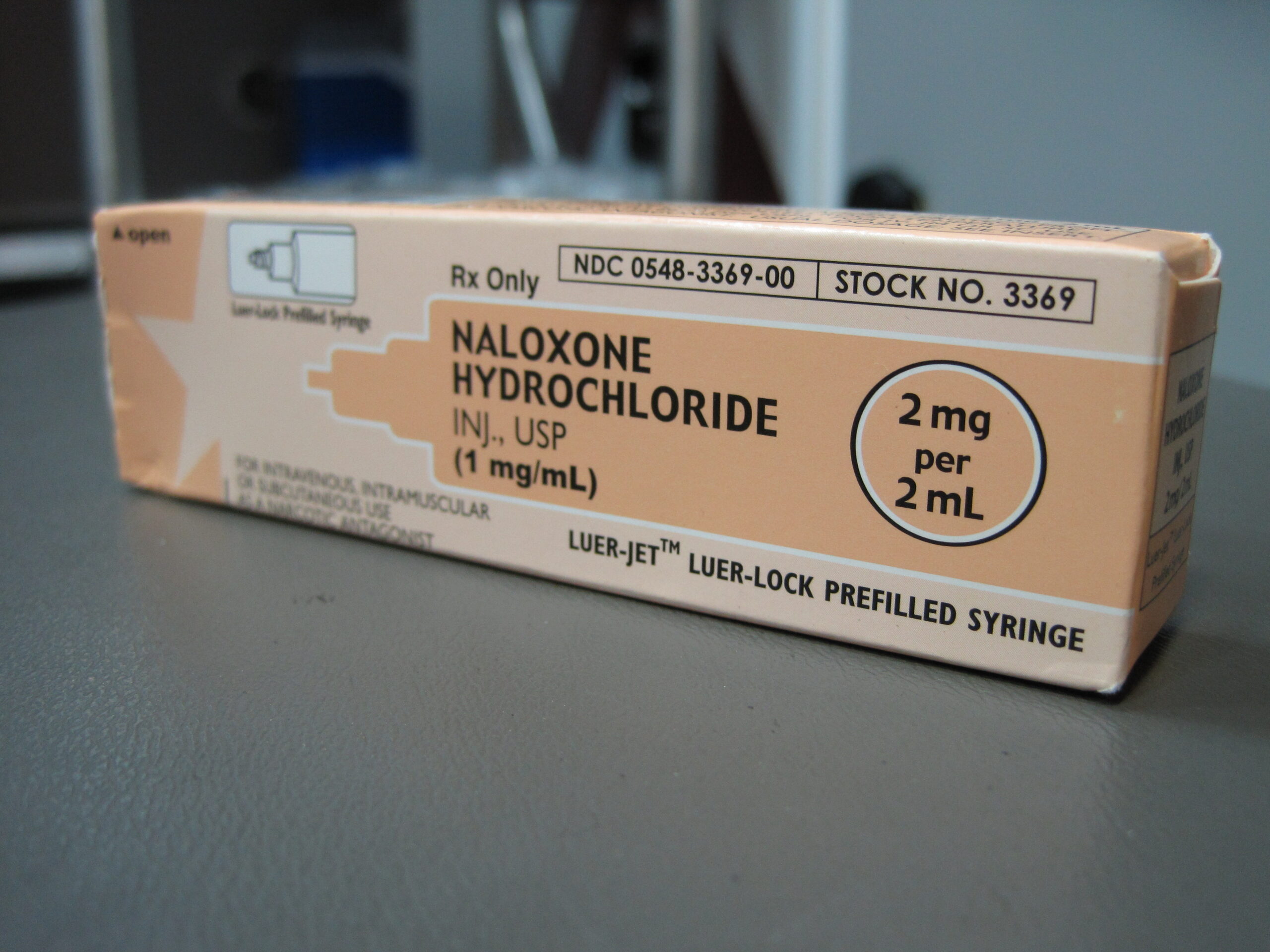
Where the county will spend
Around $2.5 million will go toward medication-assisted treatment for individuals who are incarcerated in a Milwaukee County correctional facility and are living with an opioid use disorder, according to the funding proposal. Medication-assisted treatment centers prescribe medication for those suffering from addiction to help with withdrawal.
The Milwaukee County Medical Examiner’s Office will receive over $2 million to hire more staff and needed supplies, including autopsy carts.
Over $1 million will be given to increase residential treatment capacity for substance abuse treatment centers in the county.
The county will also spend over $1 million on education to the community regarding the issue, including for “justice involved youth who have historically experienced barriers to opportunities for people of color and of lower incomes related to inequitable policies and practices across health care, childcare, education and other social determinates of health.”
Do you need help?
The Substance Abuse and Mental Health Services Administration has a free, 24/7, 365-day-a-year helpline for individuals and families facing mental and/or substance use disorders. Call 800-662-HELP (4357). You can also visit their website at www.samhsa.gov.
You can find the closest Narcan provider on the Wisconsin Narcan Direct program website at bit.ly/narcandirect.
Wisconsin Public Radio, © Copyright 2025, Board of Regents of the University of Wisconsin System and Wisconsin Educational Communications Board.

